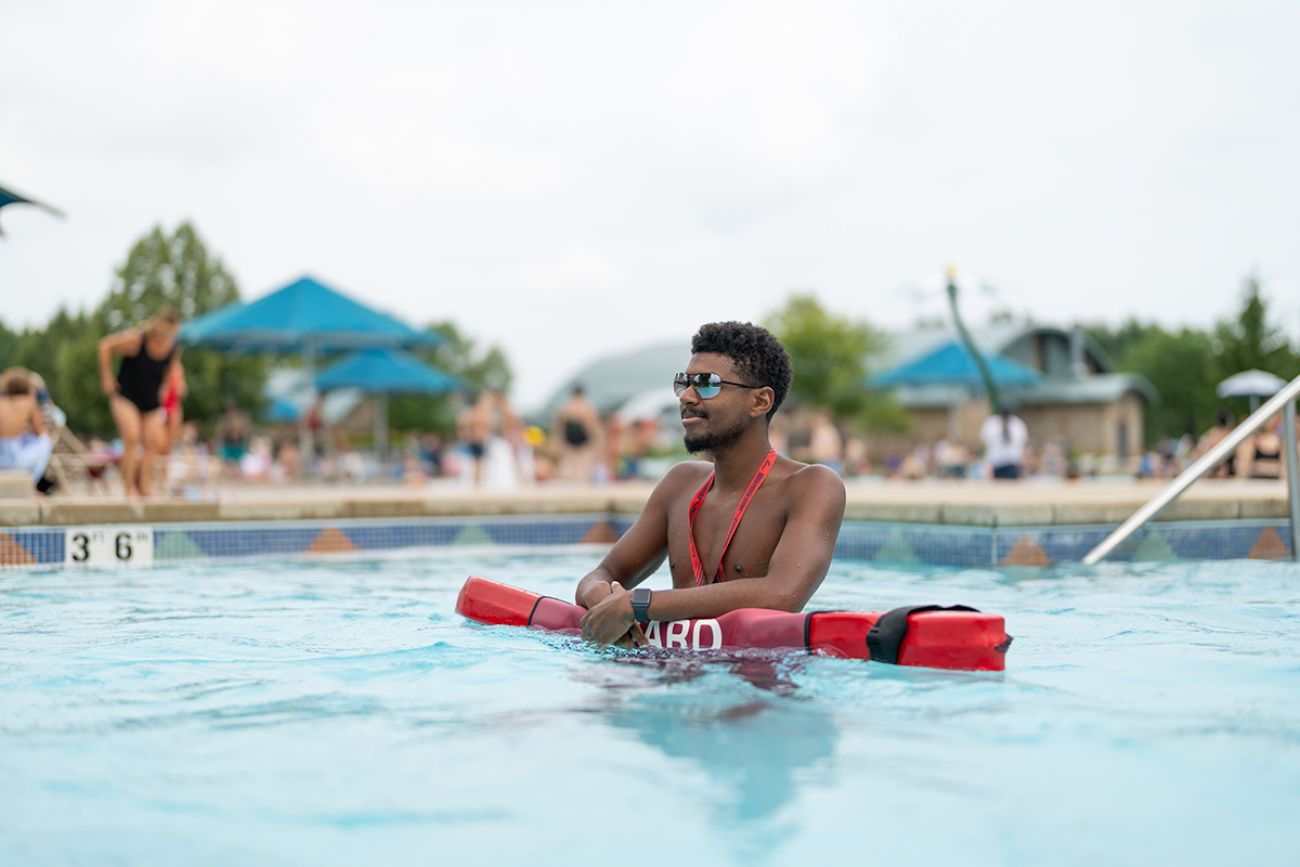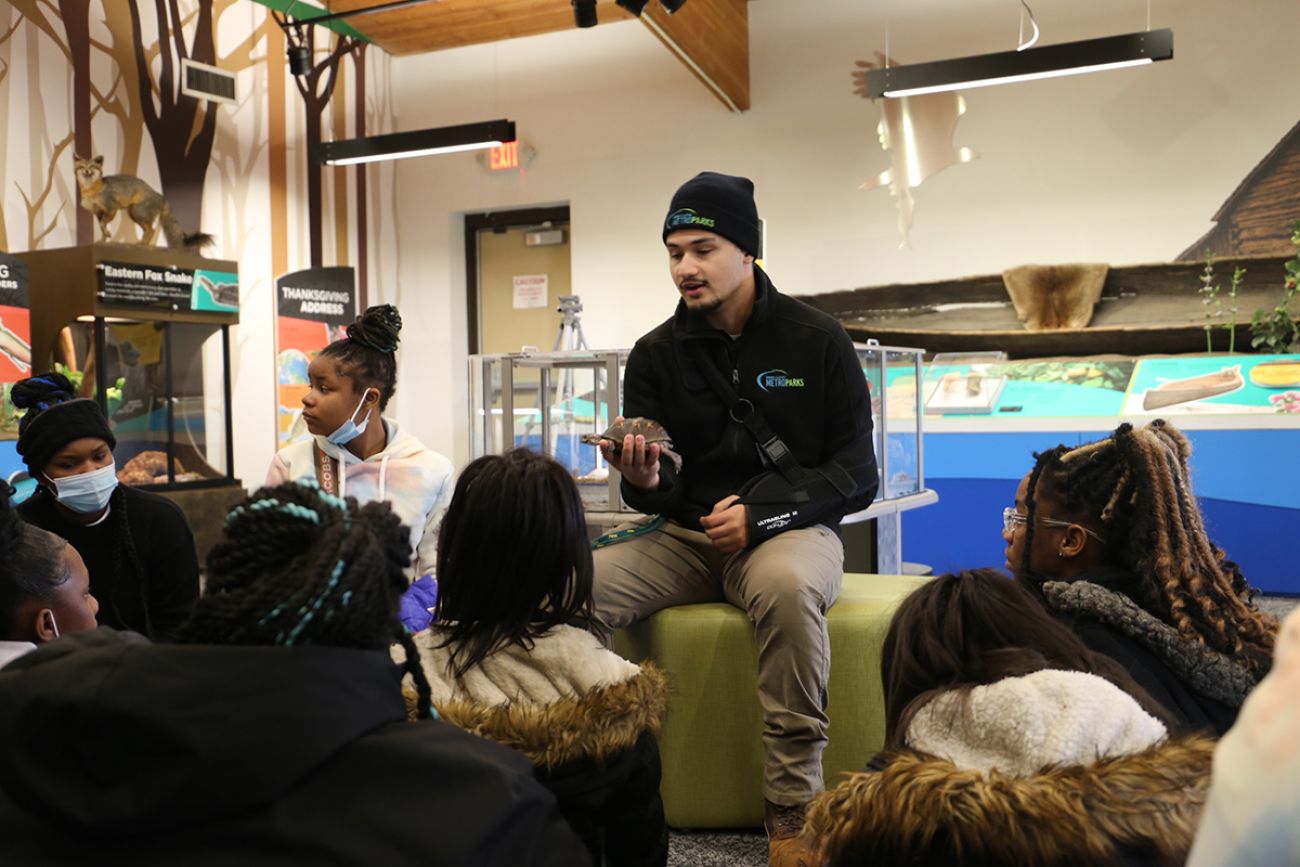Michigan parks, more popular than ever, struggle to staff up for summer

If you love the outdoors and need a summer job, Ron Olson wants you to consider working at one of the most popular places in Michigan: A state park during peak season.
“If you’re looking for a career in the outdoors, this is a great place to start,” said Olson, parks chief for the Michigan Department of Natural Resources. “Where else can you have a summer job where you can look out over a broad landscape of thousands of acres of land, and be inspired every day?”
The catch: At $10 to $11.50 an hour, you’ll make less than you could slinging burgers at a McDonald’s. And if you work in one of Michigan’s resort regions, where second homes abound but affordable worker housing is scarce, you may have a long commute.
Related: Northern Michigan resorts bemoan lack of foreign worker visas for summer
Seasonal work at Michigan’s state and local parks was once a sought-after job for students and teachers on summer break, and retirees looking for a diversion. Parks officials had no problem filling thousands of positions each summer.
In the 90s and early 2000s, “if you did not apply by February, you were not going to get a job,” said Amy McMillan, director of southeast Michigan’s Huron-Clinton Metroparks.
But the pandemic’s disruptions to the U.S. economy have hit Michigan’s parks from multiple directions: Visitation has skyrocketed since the pandemic began, but there are fewer workers to help parks accommodate the growing throngs.
The upshot for park-goers may be messier bathrooms, fewer day camp opportunities at local parks, and reduced hours at public pools this summer.
“We're no different than any other industry,” said Clay Summers, executive director of the Michigan Recreation & Park Association. “Everybody's having the same conversations around this.”
More visitors, fewer workers
Last year, Michigan State Parks visitation soared to an estimated 35 million people, up more than 30 percent over pre-pandemic levels. Local parks systems across the state also reported large increases as visitors spent more time outdoors amid COVID. That means more staff are needed to clean bathrooms, check in campers and patrol parking lots.
But across the economy, from parks to restaurants to schools, workers left jobs in droves during the pandemic, and they don’t seem to be returning in equal numbers.
The national labor force participation rate — the percentage of people 16 and older who are employed or seeking work — has bounced back from the early pandemic’s low of 60.2 percent in April 2020. But it remains 1.1 percentage point below pre-pandemic levels of 63.4 percent.
In Michigan, the rate is lower, at 59.4 percent in January, down from 61.1 percent before the pandemic. There are 131,000 fewer people in the state’s workforce than immediately before the pandemic.
And as Bridge Michigan reported in November, economists expect the struggle for lower-wage hourly workers to continue for years.
In recent years, some parks had been leaning more heavily on retirees as applications from young people waned. But that became harder during the pandemic, Olson said. Many longtime summer employees declined to return for another year, for fear of getting exposed to COVID at work.
Those submitting applications today are looking for things the parks system wasn’t previously expected to offer: Better pay, more flexible hours, and more workplace training and unique experiences.
Olson, of the state parks department, has 1,300 short-term positions to fill this summer. If last year is any indication, it’s going to be a struggle. Summer hiring fell short of goals by about 10 percent. That forced parks to contract out for services typically covered by staff, such as cleaning bathrooms and showers or mowing grass.
At Belle Isle, an island in the Detroit River, a grant-funded nonprofit youth agency brought teenage workers to cover tasks that would normally fall to parks staff.
“If we can’t get the employees, we’ve got to find another way to get things done,” Olson said. “The good news is we have a lot of users and we’re generating revenues. The hard part is we’ve got to take care of business.”
Competing with McDonald’s
The struggle to staff parks is so universal, it was a key topic at the Michigan Recreation & Park Association’s annual conference in Traverse City earlier this month. Attendees traded recruitment ideas and strategies to build a pipeline of future workers. But nobody seemed confident in their staffing for the coming season.
Pay is perhaps the biggest limiting factor. Driving home, Summers, of the parks association, passed a McDonald’s advertising for $21 an hour.
“How was Grand Traverse County Parks and Recreation, who are looking for lawn mowers and folks to work their summer playground programs, gonna compete with 21 bucks an hour, other than we can offer an experience?” he said. “That only goes so far.”
After a brutal hiring season last year, some parks have made adjustments.
Huron-Clinton Metroparks in metro Detroit hopes to fill more than 800 part-time, seasonal jobs by offering bonuses. Everyone gets an extra 60-cents per hour for all hours worked, paid at the end of the worker’s tenure. Those who stick around for the entire season, May 21 through Sept. 9, will get another $1 per hour.
And parks staff have added a “now hiring” announcement to their email signatures, hoping to avoid the staffing shortages that left key positions unfilled last year.
A lifeguard shortage meant the Lower Huron Metropark’s aquatic center often had shorter days or weekend-only hours. Other pools and beaches struggled too.
The metroparks system has begun offering free lifeguard training, and is partnering with other parks and community groups on swim classes and science programs meant to inspire future lifeguards and naturalists.
“I would be surprised if the labor market turns around anytime soon,” said McMillan, the Huron-Clinton Metroparks director. “So we're taking this short-term approach of getting as many folks in the door, and then trying to be more mindful long-term about building our workforce.”

The Troy city parks department has also raised wages and begun paying for lifeguard certification, Assistant Recreation Director Nikki McEachern said. The system is holding weekly hiring fairs with on-the-spot interviews.
Still, McEachern said, Troy and other parks systems across the state are in “survival mode.”
It could lead to lower levels of services, from fewer slots available in summer educational programs to fewer open hours at pools and other facilities.
Olson, whose budget requires legislative approval, doesn’t have the luxury of being nimble with pay raises and incentives.
His department has requested an extra $12 million to increase starting wages to $15 and hire more seasonal rangers and other positions to counterbalance rising visitation. But if lawmakers approve the new spending, it won’t be available until the next fiscal year, which begins in October. And Olson needs workers now.
The agency, which formerly tended to hire people 18-and-up, has loosened requirements to capture the high school hiring pool. It has done more social media advertising, and has made it easier to fill out an online application.
Olson said state parks leaders are considering other options, such as offering to house seasonal workers in the homes of full-timers who have room to spare.
Pleading for patience
Both Democratic Gov. Gretchen Whitmer and Republican Senators Ed McBroom, Michael MacDonald and Jon Bumstead have floated proposals to use hundreds of million of federal COVID-19 stimulus money on parks, allowing state and local systems to get caught up on massive maintenance backlogs.
But the proposals have yet to receive a Senate hearing, making it unlikely that any funds would be available in time for this year. And they're not expected to pay for staffing.
Summers’ group is hoping local communities can get clearance to use some of their own federal pandemic relief dollars for staffing and programming, instead of just infrastructure.
The message from parks officials statewide: As the weather warms and you plan your summer vacations and weekend outings, be patient. Staff are stretched thin.
“Any thanks that they can lend really helps,” McEachern said, “because a lot of people don't have that patience anymore. And we feel the brunt of that some days.”
Michigan Environment Watch
Michigan Environment Watch examines how public policy, industry, and other factors interact with the state’s trove of natural resources.
- See full coverage
- Subscribe
- Share tips and questions with Bridge environment reporter Kelly House
Michigan Environment Watch is made possible by generous financial support from:
Our generous Environment Watch underwriters encourage Bridge Michigan readers to also support civic journalism by becoming Bridge members. Please consider joining today.
See what new members are saying about why they donated to Bridge Michigan:
- “In order for this information to be accurate and unbiased it must be underwritten by its readers, not by special interests.” - Larry S.
- “Not many other media sources report on the topics Bridge does.” - Susan B.
- “Your journalism is outstanding and rare these days.” - Mark S.
If you want to ensure the future of nonpartisan, nonprofit Michigan journalism, please become a member today. You, too, will be asked why you donated and maybe we'll feature your quote next time!






